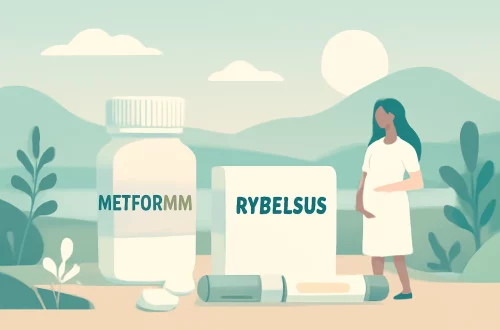
Benefits of Using Nipple Waterers for Pigs in Sustainable Farming
Sustainable farming is becoming increasingly important in today’s world, where environmental concerns and the demand for ethical practices are at the forefront of agricultural discussions. As farmers seek innovative solutions to enhance animal welfare and reduce resource consumption, the focus has shifted towards more efficient methods of providing for livestock needs. One of these methods is the use of nipple waterers for pigs, a system that not only conserves water but also promotes healthier living conditions for the animals.
Water is a critical component in swine nutrition and overall health, and ensuring that pigs have access to clean, fresh water is essential for their well-being. Traditional watering methods often lead to water wastage and contamination, which can pose significant challenges in sustainable farming practices. Nipple waterers offer a solution that aligns with the principles of sustainability by minimizing water usage while maximizing hygiene and accessibility for the animals. This innovative approach is not just a trend but a necessary adaptation to meet the growing demands of both consumers and regulatory bodies focused on sustainable practices.
In this article, we will explore the various advantages of using nipple waterers for pigs, highlighting their effectiveness in promoting animal health, conserving resources, and enhancing overall farm management.
Enhancing Animal Health and Well-Being
One of the primary benefits of nipple waterers for pigs is the significant enhancement of animal health and well-being. Access to clean and uncontaminated water is crucial for pigs, as it directly impacts their growth, reproductive health, and overall productivity. Traditional troughs or buckets can easily become breeding grounds for bacteria, leading to health issues among livestock. In contrast, nipple waterers provide a more hygienic solution, as they reduce the risk of contamination from feces, feed, and environmental debris.
The design of nipple waterers encourages pigs to drink whenever they are thirsty. This is particularly important in hotter climates or during periods of increased activity, as pigs are prone to dehydration. With nipple waterers, pigs can access water at their convenience, promoting better hydration and, consequently, improved digestion and nutrient absorption. Furthermore, proper hydration is essential for regulating body temperature, which is vital for the overall health of the animals.
Another aspect of animal welfare is the reduction of stress. Pigs that have reliable access to water are less likely to experience stress related to thirst or competition for limited resources. This can lead to a more harmonious living environment, reducing aggressive behaviors and promoting better social interactions among the herd. Healthy pigs that are well-hydrated are also less susceptible to diseases, which can lead to reduced veterinary costs and improved overall farm productivity.
Water Conservation and Environmental Impact
Water conservation is a vital consideration in sustainable farming practices, and nipple waterers play a significant role in this aspect. Traditional watering systems often result in considerable water wastage due to spillage and evaporation. Nipple waterers, however, are designed to deliver water directly to the pigs, minimizing waste and ensuring that every drop is utilized effectively.
The efficient design of nipple waterers not only conserves water but also reduces the overall environmental impact of farming operations. By using less water, farmers can lessen their burden on local water supplies, which is especially important in regions facing water scarcity. This conservation effort aligns with broader environmental goals, such as reducing the carbon footprint of agricultural practices and promoting sustainable resource management.
Moreover, the use of nipple waterers can lead to lower costs in water bills for farmers. As water becomes an increasingly precious commodity, effective management and conservation strategies are essential for maintaining profitability. By investing in nipple waterers, farmers can ensure that they are making the most out of their resources while contributing to the sustainability of their operations.
In addition to conserving water, nipple waterers can also reduce the need for frequent cleaning and maintenance associated with traditional watering methods. This not only saves time and labor costs but also decreases the use of cleaning chemicals that could potentially harm the environment. Overall, the adoption of nipple waterers represents a significant step towards creating a more sustainable and eco-friendly farming system.
Improved Efficiency in Farm Management
Implementing nipple waterers in a pig farming operation can lead to improved efficiency in farm management. These systems are designed to be low-maintenance and require minimal oversight, allowing farmers to focus on other critical aspects of their operations. With nipple waterers, the need for regular refilling and cleaning is significantly reduced, enabling farmers to allocate their time and resources more effectively.
Furthermore, the ease of installation and adaptability of nipple waterers make them an attractive option for both new and existing farms. They can be integrated into various housing systems, whether it’s an open pasture or a closed barn setup, providing flexibility for farmers to meet specific operational needs. This adaptability can also lead to enhanced biosecurity measures, as nipple waterers can be strategically placed to limit the movement of pigs and other animals, reducing the potential spread of disease.
In addition to time savings, nipple waterers can contribute to better monitoring of water intake among pigs. Many modern nipple waterers come equipped with features that allow farmers to track water consumption, providing valuable data on the hydration levels of their livestock. This information can be crucial in identifying health issues early on, leading to timely interventions and better overall herd management.
Moreover, using nipple waterers can enhance overall productivity on the farm. Pigs that are well-hydrated are more likely to exhibit optimal growth rates and reproductive performance. This leads to higher yields and better returns on investment, making nipple waterers not just a sustainable choice, but also a financially sound one for farmers looking to improve their operations.
In summary, the benefits of using nipple waterers for pigs in sustainable farming are multifaceted, ranging from enhanced animal health to significant water conservation and improved efficiency in farm management. As the agricultural landscape continues to evolve, adopting innovative solutions like nipple waterers will be crucial for farmers striving to meet the challenges of modern farming while promoting sustainability.
This article is not intended as medical advice. For any health concerns or issues, please consult with a qualified healthcare professional.




